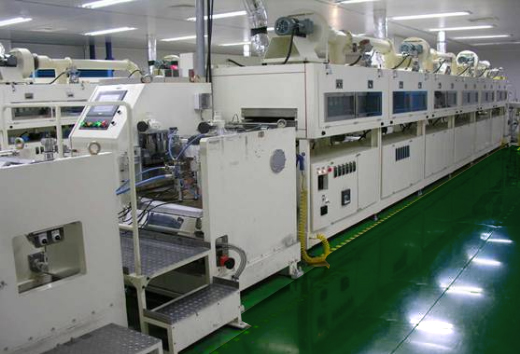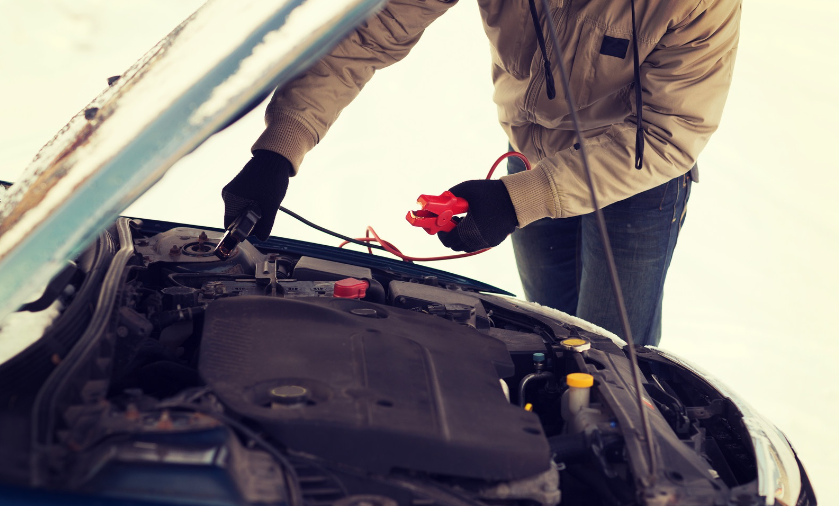Exploring the Advantages of LiFePO4 Battery Technology
Introduction
In recent years, there has been a growing interest in using lithium iron phosphate (LiFePO4) battery technology as an alternative to traditional lead-acid batteries. This is due to the many advantages that LiFePO4 batteries offer, including improved energy density, longer lifespan, and a more environmentally friendly design. In this article, we will explore the advantages of LiFePO4 battery technology in more detail.
Advantage 1: Improved Energy Density
One of the most significant advantages of LiFePO4 battery technology is its improved energy density. When compared to traditional lead-acid batteries, LiFePO4 batteries can store more energy in a smaller and lighter package. This is because LiFePO4 batteries have a higher energy density, meaning they can store more energy per unit of volume or weight. As a result, LiFePO4 batteries are often used in applications where space and weight are critical factors, such as electric vehicles, solar energy storage systems, and portable electronics.
Advantage 2: Longer Lifespan
Another significant advantage of LiFePO4 battery technology is its longer lifespan. LiFePO4 batteries can last up to 10 times longer than traditional lead-acid batteries, making them a more cost-effective solution in the long run. This is because LiFePO4 batteries have a much lower rate of self-discharge, and they can endure a higher number of charge and discharge cycles before their performance begins to degrade. As a result, LiFePO4 batteries are suitable for applications where a long lifespan is critical, such as backup power systems and renewable energy storage.
Advantage 3: More Environmentally Friendly
LiFePO4 battery technology is also more environmentally friendly than traditional lead-acid batteries. This is because LiFePO4 batteries do not contain toxic heavy metals, such as lead and cadmium, which can cause harm to the environment and human health. Additionally, LiFePO4 batteries are more easily recyclable, with up to 80% of the battery materials being reusable. As a result, LiFePO4 batteries are a more sustainable and eco-friendly option for consumers and businesses alike.

Advantage 4: Higher Charge and Discharge Rates
LiFePO4 batteries also have the advantage of being able to handle higher charge and discharge rates than traditional lead-acid batteries. This means that LiFePO4 batteries can be charged and discharged more quickly, making them ideal for applications where high power output is required, such as electric vehicles, power tools, and backup power systems. Additionally, LiFePO4 batteries can withstand higher temperatures, making them suitable for use in extreme environments.
Advantage 5: Better Safety and Reliability
Finally, LiFePO4 battery technology is known for its superior safety and reliability when compared to traditional lead-acid batteries. This is because LiFePO4 batteries are less prone to thermal runaway, a phenomenon where a battery cell overheats and causes a chain reaction that can lead to fire or explosion. Additionally, LiFePO4 batteries have a more stable chemical composition, reducing the likelihood of battery failure due to overcharging or other forms of abuse.
Conclusion
In conclusion, LiFePO4 battery technology offers many advantages over traditional lead-acid batteries, including improved energy density, longer lifespan, more environmentally friendly design, higher charge and discharge rates, and better safety and reliability. As a result, LiFePO4 batteries are becoming an increasingly popular choice for a wide range of applications, from electric vehicles to renewable energy storage systems.

-
 Les stations de base de communication jouent un rôle crucial dans la fourniture de services de communication sans fil fiables. Ces stations nécessitent une alimentation électrique continue pour assurer un fonctionnement ininterrompu. Traditionnellement, les batteries au plomb sont utilisées comme principale source d’alimentation pour les stations de base. Cependant, les progrès récents dans la technologie des batteries au lithium ont révolutionné l’industrie. Les batteries au lithium offrent de nombreux avantages par rapport aux batteries au plomb, notamment une énergie plus élevée...En savoir plus
Les stations de base de communication jouent un rôle crucial dans la fourniture de services de communication sans fil fiables. Ces stations nécessitent une alimentation électrique continue pour assurer un fonctionnement ininterrompu. Traditionnellement, les batteries au plomb sont utilisées comme principale source d’alimentation pour les stations de base. Cependant, les progrès récents dans la technologie des batteries au lithium ont révolutionné l’industrie. Les batteries au lithium offrent de nombreux avantages par rapport aux batteries au plomb, notamment une énergie plus élevée...En savoir plus -
 As a motorcycle owner, you know that having a reliable battery is essential to keeping your bike running smoothly and efficiently. With so many battery options on the market, it can be difficult to decide which one to choose. However, one type of battery that has been gaining popularity among motorcycle enthusiasts is the LiFePO4 battery. LiFePO4 is short...En savoir plus
As a motorcycle owner, you know that having a reliable battery is essential to keeping your bike running smoothly and efficiently. With so many battery options on the market, it can be difficult to decide which one to choose. However, one type of battery that has been gaining popularity among motorcycle enthusiasts is the LiFePO4 battery. LiFePO4 is short...En savoir plus -
 LiFePO4 batteries, also known as lithium iron phosphate batteries, have gained popularity as an alternative to traditional lead-acid batteries. These batteries offer several benefits, including longer lifespan, faster charging, and better performance in extreme temperatures. In this article, we will explore these benefits in more detail. Longer Lifespan One of the biggest advantages of LiFePO4 batteries is their longer...En savoir plus
LiFePO4 batteries, also known as lithium iron phosphate batteries, have gained popularity as an alternative to traditional lead-acid batteries. These batteries offer several benefits, including longer lifespan, faster charging, and better performance in extreme temperatures. In this article, we will explore these benefits in more detail. Longer Lifespan One of the biggest advantages of LiFePO4 batteries is their longer...En savoir plus -
 In recent years, the demand for energy storage has increased significantly as more people are turning to renewable energy sources like solar and wind power. The key to reliable and efficient energy storage lies in the development of high-performance batteries. Among the different types of batteries available in the market, lithium-ion batteries have emerged as the most promising technology for...En savoir plus
In recent years, the demand for energy storage has increased significantly as more people are turning to renewable energy sources like solar and wind power. The key to reliable and efficient energy storage lies in the development of high-performance batteries. Among the different types of batteries available in the market, lithium-ion batteries have emerged as the most promising technology for...En savoir plus -
 In today's world, we rely heavily on electronic devices. Whether it be a smartphone, laptop or tablet, we often find ourselves in situations where the battery life of our devices is running low, and we are unable to find a power source to recharge them. This is where an emergency starter battery comes in handy. An emergency starter battery...En savoir plus
In today's world, we rely heavily on electronic devices. Whether it be a smartphone, laptop or tablet, we often find ourselves in situations where the battery life of our devices is running low, and we are unable to find a power source to recharge them. This is where an emergency starter battery comes in handy. An emergency starter battery...En savoir plus -
 When it comes to embarking on an adventure-filled journey, having a reliable power source is essential. Whether you are camping in the wilderness, exploring remote areas, or simply enjoying the great outdoors, a lithium camper battery can be the ultimate power solution. With its numerous advantages over traditional lead-acid batteries, the lithium camper battery is becoming increasingly popular among outdoor...En savoir plus
When it comes to embarking on an adventure-filled journey, having a reliable power source is essential. Whether you are camping in the wilderness, exploring remote areas, or simply enjoying the great outdoors, a lithium camper battery can be the ultimate power solution. With its numerous advantages over traditional lead-acid batteries, the lithium camper battery is becoming increasingly popular among outdoor...En savoir plus -
 Introduction: Golf carts have become an increasingly popular mode of transportation not just on golf courses, but also in communities, resorts, and even commercial areas. These low-speed vehicles offer a convenient and eco-friendly alternative to traditional cars. However, to ensure a smooth and reliable ride, it is crucial to have a high-quality golf cart battery. In this article, we will...En savoir plus
Introduction: Golf carts have become an increasingly popular mode of transportation not just on golf courses, but also in communities, resorts, and even commercial areas. These low-speed vehicles offer a convenient and eco-friendly alternative to traditional cars. However, to ensure a smooth and reliable ride, it is crucial to have a high-quality golf cart battery. In this article, we will...En savoir plus

